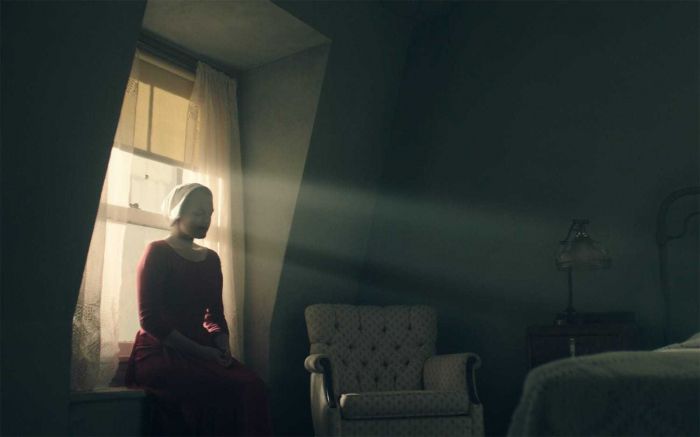Reading: Moana, The Handmaid’s Tale, Mount Eerie’s A Crow Looked at Me & More

My Christ and Pop Culture colleague Geoffrey Reiter has written an excellent piece on Moana’s treatment of tradition. “Unlike so many comparable movies, Moana suggests that our true identities represent a synthesis of our own individual desires and the people and traditions which shape us. And by recognizing tradition as a long, substantive, and dynamic force, Moana provides a surprising and powerful parallel to the experience of many younger evangelicals like myself.” Like Reiter, I was surprised at how enjoyable, and even sublime, Moana turned out to be.
Jason Coffman’s in-depth examination of the career of filmmaker Russ Doughten is fascinating to me because a) I grew up in a church that proclaimed the rapture, so I’m familiar with films like A Thief in the Night, b) I’m a sucker for strange little niche films, and it doesn’t get more niche (or stranger) then obscure cult/exploitation films of the ’50s and ’60s, and c) I’m fascinated by how easily the worlds of Christian cinema and cult/exploitation cinema seem to overlap.

Hulu’s adaptation of The Handmaid’s Tale has been receiving quite a bit of acclaim lately; many people are finding it prophetic in light of Trump. However, Marybeth Davis Baggett argues Hulu’s adaptation might be missing a few things. “It’s tempting for viewers to fixate on this divide, for liberals to identify with the hapless handmaids and conservatives to resent their representation as heartless oppressors. My hope is that the threads of compassion woven throughout the currently available episodes will deescalate the political rhetoric swirling around the series. I hope, too, these grace notes will sound again in future episodes and even increase.”
On a related note, S.D. Kelly finds issue with The Handmaid’s Tale’s portrayal of Christian fundamentalism. “[T]hat confusion is just one of the many narrative elements that make little sense in The Handmaid’s Tale. Much of this incoherence is the result of utilizing fundamentalist Christianity as the basic framework for this particular dystopia without demonstrating any understanding of what fundamentalist Christianity is actually about.”

Mount Eerie’s A Crow Looked at Me is one of 2017’s best albums, a harrowing account of Phil Elverum trying (and sometimes failing) to come to terms with his wife’s sudden and tragic death. Here’s my review at Christ and Pop Culture: “Recorded in the months following Geneviève’s death in the same room where she died, and with many of her instruments, A Crow Looked at Me is […] frequently beautiful and heart-wrenching, and suffused with deeply human pain and longing as Elverum struggles to exist in a world that no longer contains his wife.”
I also discussed Mount Eerie’s A Crow Looked at Me on the latest edition of Christ and Pop Culture’s “CaPC 25” podcast.

Guy Ritchie’s new King Arthur movie makes one wonder why we can’t have a good King Arthur movie?. “Ritchie’s King Arthur made me wonder if we can even appreciate a fun, good-hearted version of the original heroic narrative anymore. Maybe these tropes have been subverted and deconstructed so often, particularly when it comes to epic fantasy, that no one wants to buy into the archetypes now.”
Freddie deBoer identifies three ridiculous technologies coming out of Silicon Valley, such as Fiverr. “The purpose of these companies is to take whatever tiny sense of social responsibility businesses might still feel to give people stable jobs and destroy it, replacing whatever remains of the permanent, salaried, benefit-enjoying workforce with an army of desperate freelancers who will never go to bed feeling secure in their financial future for their entire lives.”
Oliver Brooks explores the downside of mis-applying a “mobile first” approach to web design. “When a designer interprets Mobile First as meaning mobile is best, the decision to use mobile designs in desktop environments seems like a reasonable, logical leap — it plays into designers’ innate desire for elegant, ‘unified’, one-size-fits-all solutions. At worst, when Mobile First is abused it can act as an excuse for laziness — saving designers and developers from having to create separate UI for desktop and mobile — and at best it can act as an excuse for justifying holy-grail-like ‘unified’ design solutions.”